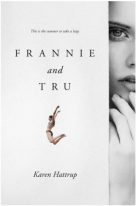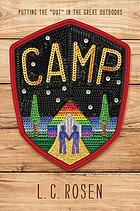 Hattrup, Karen. Frannie and Tru. HarperTeen. 2016. $17.99. 320p. PB. 9780062410207.
Hattrup, Karen. Frannie and Tru. HarperTeen. 2016. $17.99. 320p. PB. 9780062410207.
Fifteen-year-old Frannie expected to have a depressing summer as she prepared to adjust to a new high school in the fall, so she gets excited when she learns that her cousin Truman will be staying with her family for the summer. She doesn’t know much about seventeen-year-old Tru except that he’s recently come out as gay and gives off a charming bad boy vibe. Frannie tries to impress Tru so that he will take her under his wing, introducing her to interesting – and sometimes dangerous – people and places. Frannie has lived a largely sheltered life up to this point, as an upper-middle class, mildly Catholic, straight, white, teenage girl. All these different aspects of her identity are brought to the forefront at various times in the story, showing her how social privilege can manifest in numerous ways. As with any coming-of-age story, Frannie begins to realize that people are multi-dimensional as she learns unexpected things about her parents, her brothers, and, most of all, her cousin Tru. The frustration Frannie feels throughout the novel will resonate with any teen futilely trying to keep life from throwing big changes their way. Ultimately, Frannie learns to be honest not only to others, but to herself as well.
Recognizing prejudice is a recurring theme in the novel, as Frannie is confronted with situations she had never been forced to consider, such as a security guard treating a white boy and a black boy very differently. These scenes read almost like a primer for straight, white, middle-class girls to open their eyes to intersections of privilege and oppression. While such discussions are important for YA literature, the presentation of these issues through the eyes of someone like Frannie means the book is not likely to appeal to anyone who is not straight, white, and middle-class, because they already face these situations on a daily basis. The book is certainly reasonable to keep in any library collection, but I would recommend pointing readers to books that treat such issues in a deeper way, from a more diverse point of view.
Megan Ozeran
Library/Media Specialist
Yuba Community College



